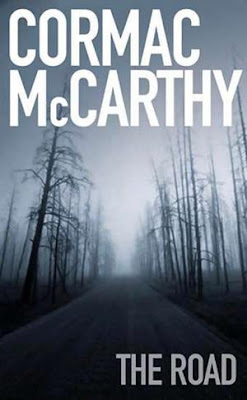
Por algún blog suelto en internet encontré un post con muchas fotos de Obama posando con niños durante la campaña. Aparecía besando bebés con frases de apoyo tipo Vote 4 Obama escritas en su frente, sonriéndole a nenes que lo miraban con admiración, con sus hijas acompañándolo, y me di cuenta mientras las iba viendo de que todo eso me generaba mucha simpatía y hacía que Obama me cayera bien. Nunca me puse a pensar por qué es tan importante para los candidatos hacer ese teatro para ganar popularidad cuando en realidad poco tiene que ver su capacidad de gobierno con el que le caigan bien los chicos (y viceversa). Pero después me acordé de Air Force One, una película en la que el Presidente de Estados Unidos de América es un family man perfecto, con una nena hermosa y una mujer que lo apoya en todo, que en un momento de la trama se ve forzado a decidir entre dejar que el terrorista que secuestró el avión mate a su hija o tomar una decisión política dañina para su país. Y el tipo elige salvar a su hija. Ni siquiera le da tiempo a que el villano termine su conteo mientras le apunta a la nena con un arma: al “Two”, el hombre-más-poderoso-del-mundo, con lágrimas en los ojos, le dice que ok, que le da lo que él quiere, pero que deje a su familia tranquila. Es un momento que emociona de verdad en la película, porque aparece el padre -con quien más nos identificamos porque es como nosotros- antes que el líder político, que es un ideal (por lo menos desde la mirada norteamericana). Claro, todo sería de una ideología pro-yanqui insoportable si no fuera porque el presidente es Harrison Ford –o sea que es Indiana Jones también–, con lo cual automáticamente creemos en su honestidad y hombría de bien, y porque el villano, que es un terrorista ruso que exige la liberación de un general comunista, le dice un par de verdades a Mr. President en la cara y explica su ideología de manera clara y con argumentos válidos sin que la película se burle de él cuando lo hace. Además, lo interpreta Gary Oldman, que en términos de cool, rankea bien alto, casi al mismo nivel que Harrison.
O sea que sí, que quizás entiendo por qué los candidatos tienen que salir a besar niños en la frente antes de las elecciones. Porque aun sabiendo que todo ese circo es prefabricado, pensado desde los miles de asesores de imagen, hay algo en esa conexión básica y honesta con los chicos que nos causa ternura y nos hace pensar que estamos frente a un ser humano que no va a dudar en poner a sus personas amadas por delante de su país, y que eso mismo es lo que va a hacer que también tome las mejores decisiones políticas, porque, como en Air Force One, esos personajes son los que ganan al final. Son los buenos de la historia. Es una utopía, un lindo cuento de Hollywood. No existe, pero nos gusta que nos lo cuenten.

Y sí, a mí me encantaría tener de presidente a Harrison Ford.

